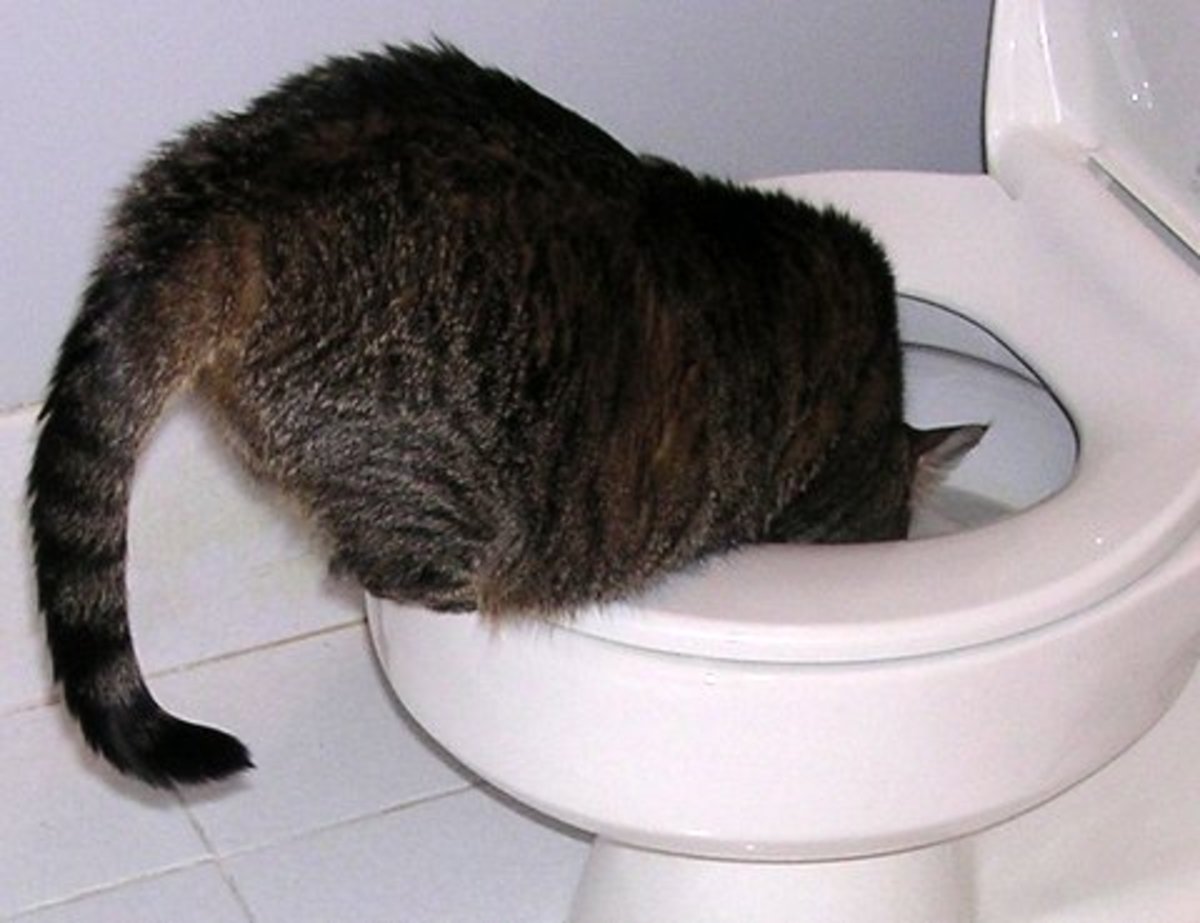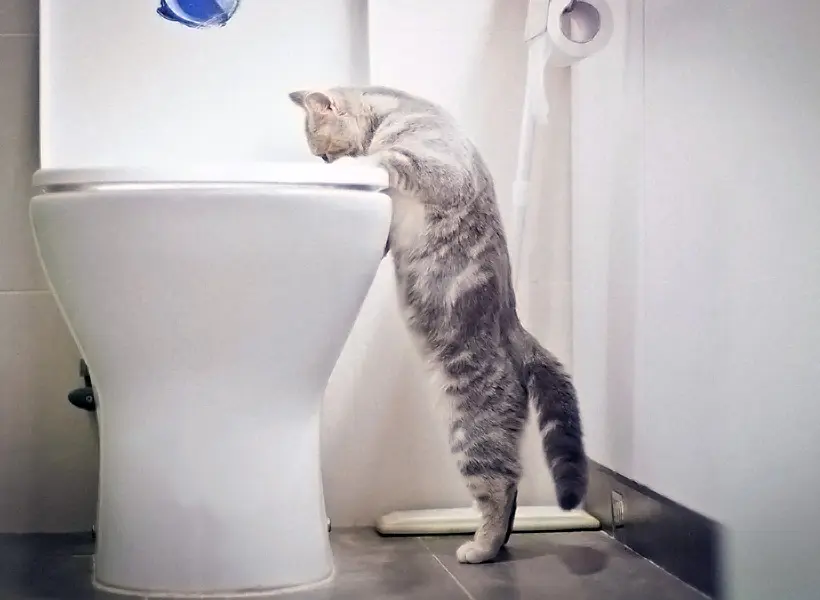Uncovering Why Animal Waste Needs to Not Be Flushed Down the Toilet
Uncovering Why Animal Waste Needs to Not Be Flushed Down the Toilet
Blog Article
We've stumbled upon this article about Can You Flush Dog and Cat Poo Down the Toilet? directly below on the internet and decided it made sense to discuss it with you on my blog.

When it concerns disposing of waste, particularly animal waste, lots of people usually resort to the practical option of flushing it down the toilet. However, this relatively very easy option can have significant effects for the atmosphere and public health. In this write-up, we'll check out why flushing pet waste down the commode is a bad concept and supply different methods for proper disposal.
Intro
Proper waste disposal is essential for maintaining ecological sustainability and public health. While it may seem harmless to purge animal waste down the bathroom, it can result in numerous issues, both for the setting and human health.
Dangers of flushing pet waste
Ecological effect
Flushing animal waste introduces dangerous germs and virus into waterways, which can adversely influence water environments. These virus can pollute water sources and harm aquatic life, disrupting delicate ecosystems.
Public health concerns
Pet waste has hazardous germs such as E. coli and Salmonella, which can pose significant health dangers to human beings. Flushing animal waste down the commode can contaminate water products, bring about the spread of diseases and infections.
Alternatives to flushing
Rather than flushing animal waste down the bathroom, there are numerous alternate disposal techniques that are much more environmentally friendly and hygienic.
Composting
Composting animal waste is an environmentally friendly way to deal with it. By composting, organic matter is broken down into nutrient-rich dirt, which can be utilized to fertilize yards and plants.
Garbage dump disposal
Disposing of pet waste in a land fill is one more option. While not as environmentally friendly as composting, it is a more secure choice to flushing, as it stops the contamination of water resources.
Pet dog garbage disposal systems
There are specific animal garbage disposal systems readily available that safely and hygienically throw away animal waste. These systems frequently use enzymes to break down waste and get rid of odors.
Actions to proper pet waste disposal
To ensure correct disposal of animal waste, adhere to these steps:
Scooping and landing waste
Consistently scoop and bag pet waste using eco-friendly bags. This prevents waste from polluting the environment.
Making use of marked waste containers
Dispose of bagged animal waste in marked waste bins, such as compost bins or land fill containers. Avoid flushing it down the commode in all prices.
Cleaning can and animal areas on a regular basis
Consistently tidy can and family pet areas to prevent the buildup of waste and bacteria. Usage pet-safe cleansing products to maintain hygiene.
Advantages of appropriate disposal techniques
Adopting appropriate disposal methods for pet waste supplies a number of benefits:
Reduced environmental pollution
Correct disposal methods reduce the danger of environmental pollution, protecting rivers and environments from contamination
Decreased danger of water contamination.
By staying clear of flushing animal waste down the commode, the risk of water contamination is dramatically reduced, guarding public health.
Improved cleanliness and health
Proper disposal techniques advertise better cleanliness and hygiene, developing a safer environment for both people read more and pets.
Verdict
In conclusion, flushing pet waste down the toilet is unsafe to the environment and public health. By taking on alternative disposal techniques and adhering to correct waste management techniques, we can decrease the adverse influence of animal waste and contribute to a cleaner, much healthier earth.
What To Do With Dog Poo – The Do's And Don'ts Of Disposing Of Faeces
Dog poo bins
Some councils provide dedicated dog waste bins in popular dog-walking areas that can take dog poo that has been bagged but you can legally dispose of dog waste in any public litter bin, as long as it is securely bagged. This also applies to your wheelie bin at home.
Do not flush
Water companies do not recommend flushing dog faeces down the toilet because certain parasites can survive the water processing treatment and are potentially harmful to humans. You should also never consider flushing dog poo that has been bagged down the toilet as the bags will not break down and instead create severe blockages in the sewage system.
In the woods
The Forestry Commission promotes a ‘stick and flick’ method for dealing with waste in the woods. This means finding a stick and using it to flick any poo from off the path so that it is out of the way of other walkers. You could also bury it as long as it is not in an area where there might be livestock.
Livestock
Parasites found in dog poo can be transmitted to livestock if they inadvertently eat infected faeces that has been left on grazing land. This could result in the death of sheep or abortion in cattle so you should always make sure you pick up your dog’s waste in fields where livestock could be present.

Consistently tidy can and family pet areas to prevent the buildup of waste and bacteria. Usage pet-safe cleansing products to maintain hygiene.
Advantages of appropriate disposal techniques
Adopting appropriate disposal methods for pet waste supplies a number of benefits:
Reduced environmental pollution
Correct disposal methods reduce the danger of environmental pollution, protecting rivers and environments from contamination
Decreased danger of water contamination.
By staying clear of flushing animal waste down the commode, the risk of water contamination is dramatically reduced, guarding public health.
Improved cleanliness and health
Proper disposal techniques advertise better cleanliness and hygiene, developing a safer environment for both people read more and pets.
Verdict
In conclusion, flushing pet waste down the toilet is unsafe to the environment and public health. By taking on alternative disposal techniques and adhering to correct waste management techniques, we can decrease the adverse influence of animal waste and contribute to a cleaner, much healthier earth.
What To Do With Dog Poo – The Do's And Don'ts Of Disposing Of Faeces
Dog poo bins
Some councils provide dedicated dog waste bins in popular dog-walking areas that can take dog poo that has been bagged but you can legally dispose of dog waste in any public litter bin, as long as it is securely bagged. This also applies to your wheelie bin at home.
Do not flush
Water companies do not recommend flushing dog faeces down the toilet because certain parasites can survive the water processing treatment and are potentially harmful to humans. You should also never consider flushing dog poo that has been bagged down the toilet as the bags will not break down and instead create severe blockages in the sewage system.
In the woods
The Forestry Commission promotes a ‘stick and flick’ method for dealing with waste in the woods. This means finding a stick and using it to flick any poo from off the path so that it is out of the way of other walkers. You could also bury it as long as it is not in an area where there might be livestock.
Livestock
Parasites found in dog poo can be transmitted to livestock if they inadvertently eat infected faeces that has been left on grazing land. This could result in the death of sheep or abortion in cattle so you should always make sure you pick up your dog’s waste in fields where livestock could be present.

I discovered that blog post on while surfing around the web. Are you aware of somebody who is involved in the niche? Take a moment to share it. Thanks for being here. Revisit us soon.
Book Appointment Now Report this page